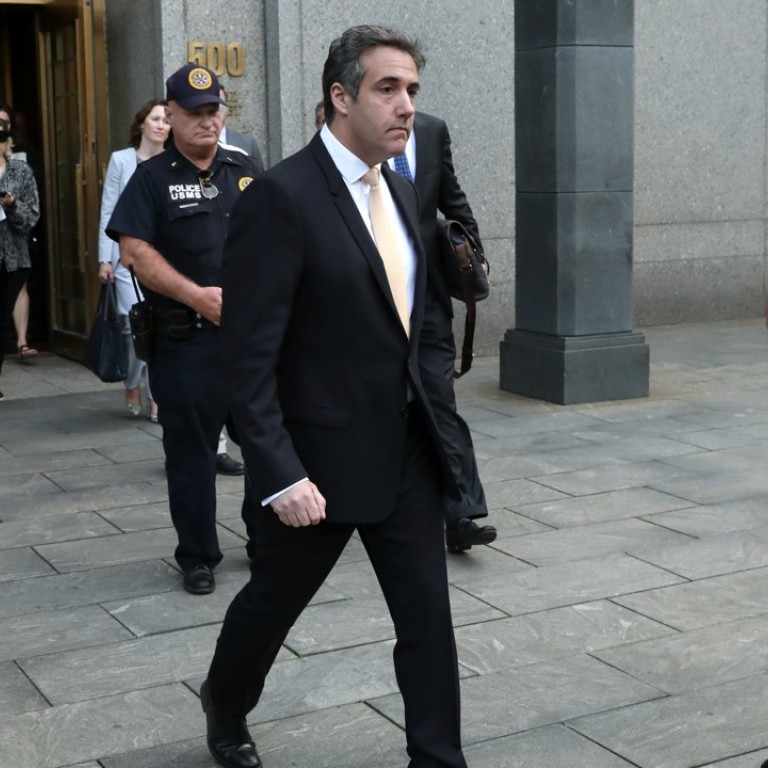
Trump’s ex-lawyer Michael Cohen pleads guilty, says Trump ordered hush-money payments to porn star and Playmate
Cohen, 51, could get about four to five years jail in plea deal. He says he and Trump paid off Stormy Daniels and Karen McDougal to influence the US presidential election
Michael Cohen, US President Donald Trump’s former personal lawyer and “fixer,” pleaded guilty Tuesday to campaign-finance violations and other charges, saying he and Trump arranged the payment of hush money to porn star Stormy Daniels and a former Playboy model to influence the election.
Cohen’s account appears to implicate Trump himself in a crime, though whether – or when – a president can be prosecuted remains a matter of legal dispute.
Guilty: Trump’s former campaign boss Manafort convicted of fraud
The guilty plea came almost at the same moment former Trump campaign chairman Paul Manafort was convicted in Alexandria, Virginia, of eight financial crimes in the first trial to come out of special counsel Robert Mueller’s sprawling Russia investigation.
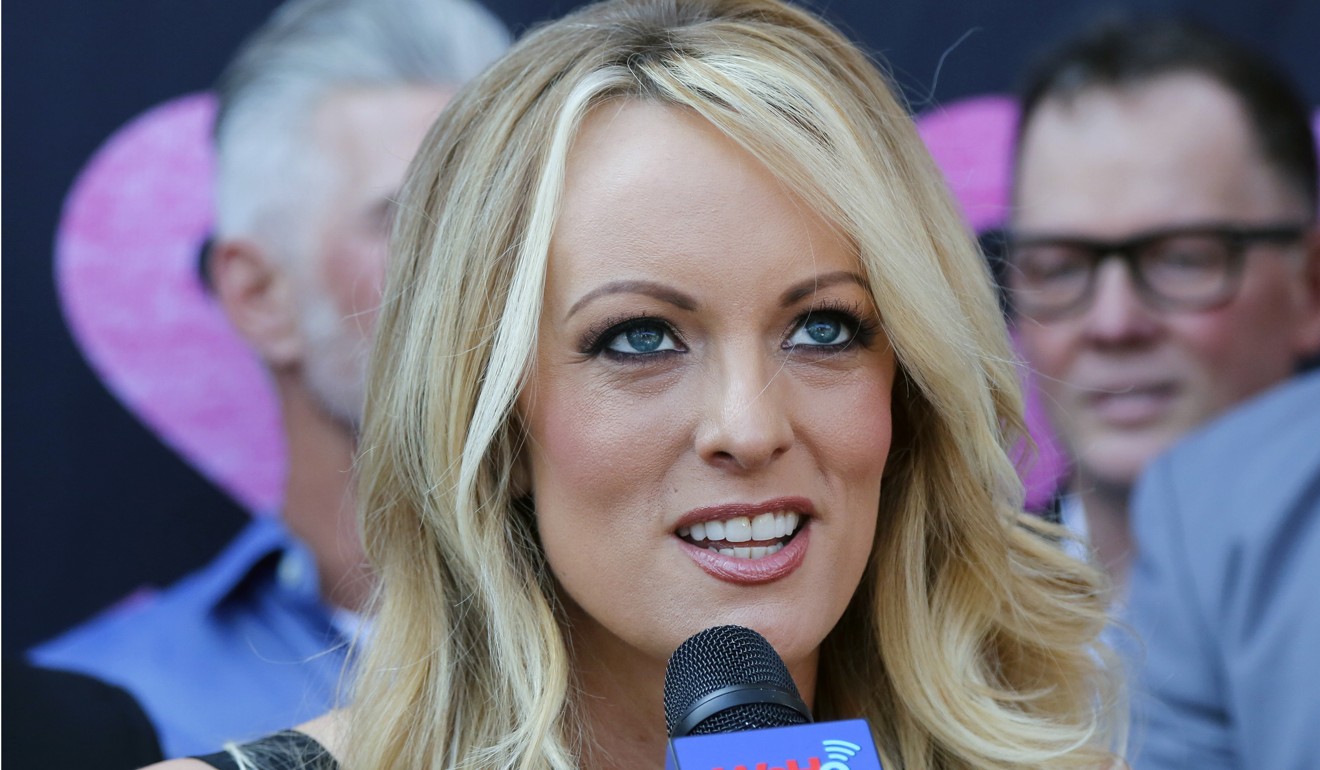
In a deal reached with federal prosecutors, Cohen, 51, pleaded guilty to eight counts in all, including tax evasion and making a false statement to a financial institution. He could get about four to five years in prison at sentencing December 12.
In entering the plea, Cohen did not name the two women or even Trump, recounting instead that he worked with an “unnamed candidate”. But the amounts and the dates all lined up with the payments made to Daniels and Playboy Playmate Karen McDougal in the weeks and months leading up to the 2016 White House election.
Cohen, his voice shaky as he answered questions from a federal judge, said one payment was “in coordination and at the direction of a candidate for federal office,” and the other was made “under direction of the same candidate.”
However, in the charging documents, a press release and comments outside the courthouse, prosecutors did not go as far as Cohen did in open court in pointing the finger at the president. Prosecutors said Cohen acted “in coordination with a candidate or campaign for federal office for purposes of influencing the election.”
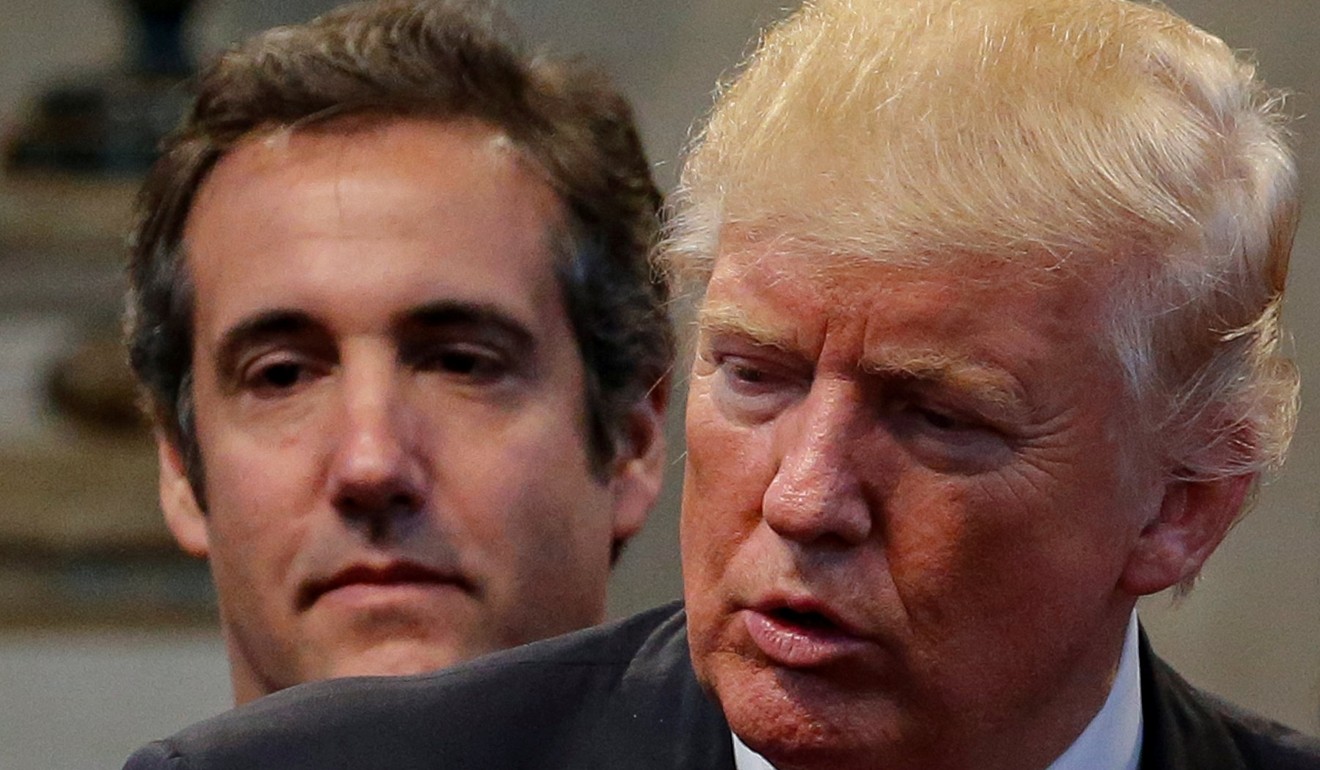
Cohen’s lawyer, Lanny Davis, made clear that Cohen was referring to the US President, and said that if Cohen was guilty, so was Trump.
“Today he (Cohen) stood up and testified under oath that Donald Trump directed him to commit a crime by making payments to two women for the principal purpose of influencing an election,” Davis said in a statement after Cohen’s plea.
“If those payments were a crime for Michael Cohen, then why wouldn’t they be a crime for Donald Trump?” he said.
As cable networks were showing split-screen coverage of the duelling conviction and plea bargain by two former loyalists, Trump boarded Air Force One in the afternoon on the way to a rally in West Virginia. He ignored shouted questions to reporters about both former aides, retreating to his private stateroom on the airliner.
Three more women were paid Trump hush money, says Stormy Daniels’ lawyer
After the court hearing, which ended with Cohen released on US$500,000 bail, the lawyer wiped away tears as he gazed out a courthouse window. He left the building and headed straight for a black SUV with tinted windows. A couple of people outside chanted, “Lock him up!” as they recorded the scene with their phones.
Under federal law, an expenditure to protect a candidate’s political fortunes can be construed as a campaign contribution, subject to federal laws that bar contributions from corporations and set limits on how much can be donated.
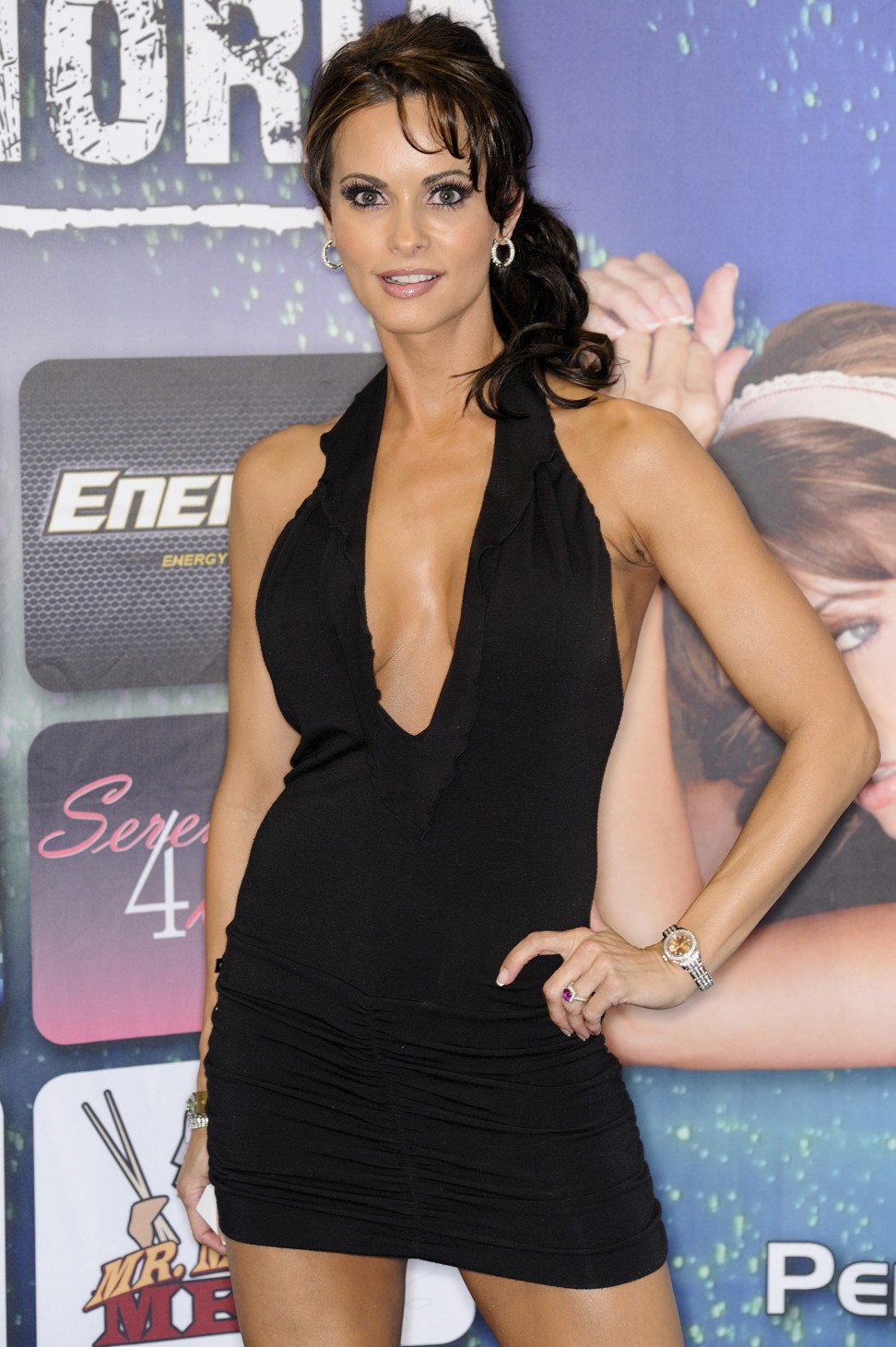
Daniel Petalas, former prosecutor in the Justice Department’s public integrity section, said, “This brings President Trump closer into the criminal conduct.”
“The president has certain protections while a sitting president but if it were true, and he was aware and tried to influence an election, that could be a federal felony offence,” Petalas said. “This strikes close to home.”
Cohen’s plea follows months of scrutiny from federal investigations and a falling-out with the president, whom he previously said he would “take a bullet” for.
The FBI raided Cohen’s hotel room, home and office in April and seized more than 4 million items. The search sought bank records, communications with Trump’s campaign and information on a US$130,000 payment to Daniels and a US$150,000 one to McDougal. Both women claimed Trump had affairs with them, which he denies.
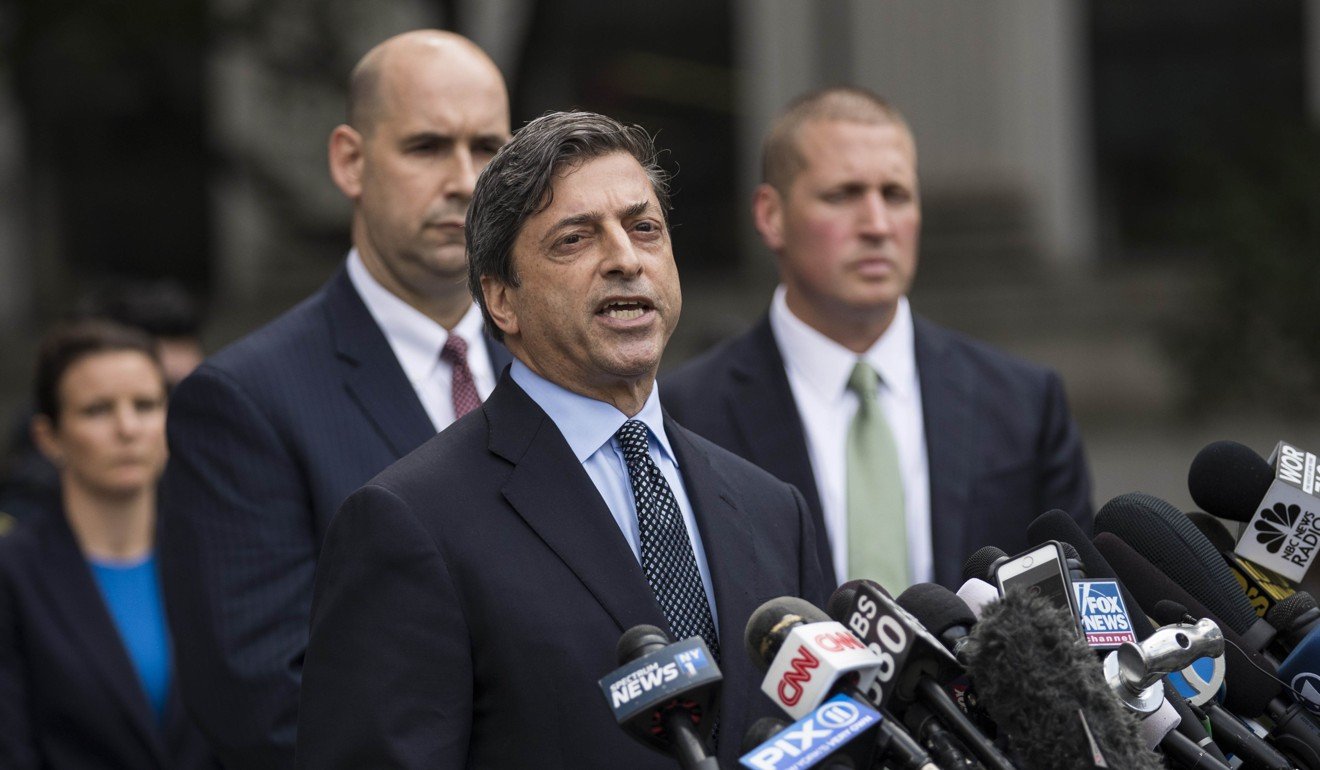
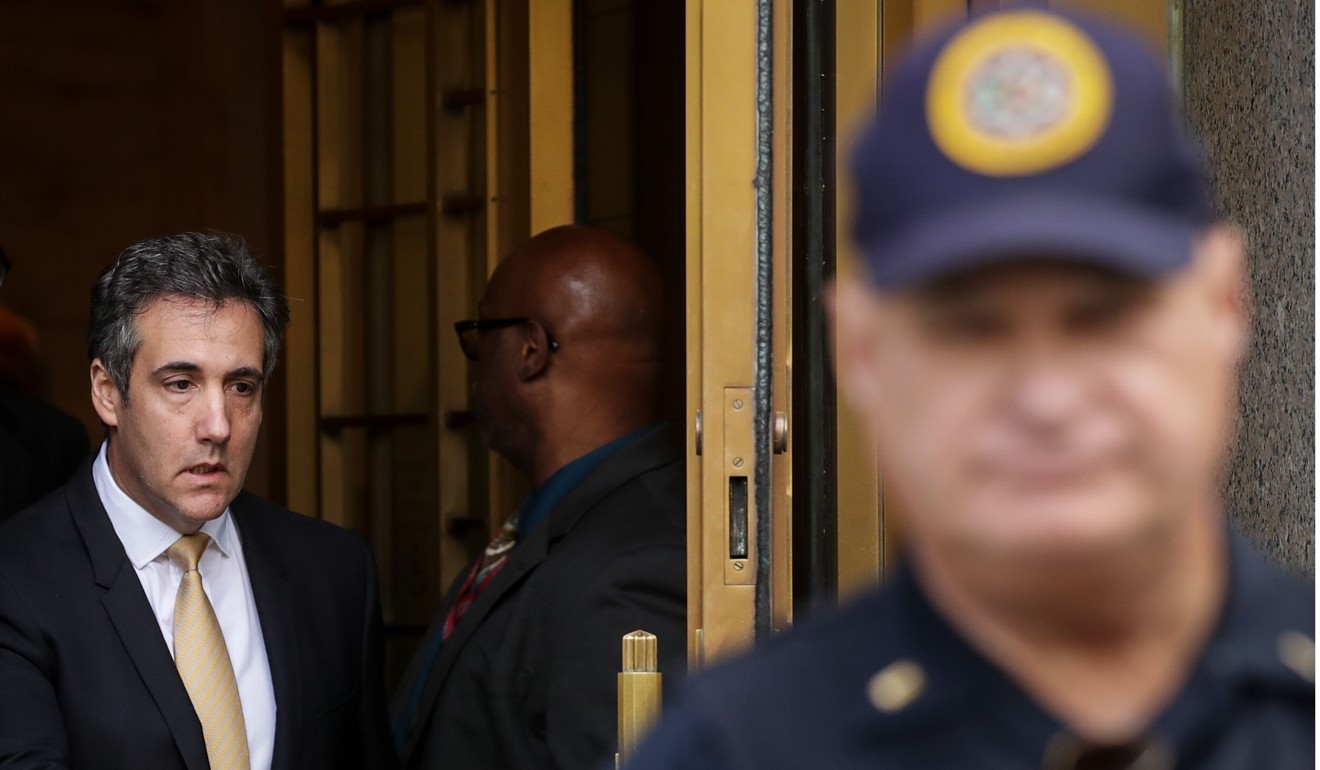
Trump denied to reporters in April that he knew anything about Cohen’s payments to Daniels, though the explanation from the president and his attorney Rudy Giuliani have shifted multiples times since.
The president has fumed publicly about what he felt was government overreach, while privately worrying about what material Cohen may have after working for the Trump Organization for a decade. Trump branded the raid “a witch hunt,” an assault on attorney-client privilege and a politically motivated attack by enemies in the FBI.
“Obviously it’s not good for Trump,” Sol Wisenberg, who conducted grand jury questioning of president Bill Clinton during the Whitewater investigation, said of Cohen plea bargain.
“I’m assuming he’s not going to be indicted because he’s a sitting president, Wisenberg added. “But it leads him closer to ultimate impeachment proceedings, particularly if the Democrats take back the House.”
The Justice Department’s Office of Legal Counsel, which provides legal advice and guidance to executive branch agencies, has held that a president cannot be indicted while in office. Trump’s lawyers have said that Mueller plans to adhere to that guidance, though Mueller’s office has never confirmed that. There would presumably be no bar against charging a president after he leaves the White House.
Laurie Levenson, a former federal prosecutor and professor at Loyola Law School in Los Angeles, noted that the deal does not require Cohen to cooperate, but does not preclude it from happening, which should be worrying to the president and his allies.
“What it shows is that the people close to the president have criminal exposure and it may mean they don’t need Cohen to cooperate,” she said.
Levenson argued that the deal also knocks back the argument that the investigations swirling around Trump are a “witch hunt.”
“No longer can you say Mueller is on a witch hunt when you have his own lawyer pleading guilty to things that were designed to impact the election,” she said.
Democratic Representative Adam Schiff of California, a member of the House Permanent Select Committee on Intelligence, said in a statement: “The factual basis of the plea, potentially implicating the president in illegal campaign finance violations, adds to the president’s legal jeopardy.”
Mueller’s team, which is looking into Russian interference in the 2016 US presidential election, came across the some of the evidence against Cohen in the course of its investigation and referred the matter to federal prosecutors in New York.
Deputy US Attorney Robert Khuzami said that in addition to the campaign finance violations, Cohen failed to report more than US$4 million in income between 2012 and 2016, including about US$2.5 million from interest payments on a personal loan and US$1.3 million from his taxi medallion holdings.
Cohen also lied to a financial institution by failing to disclose more than US$14 million in debt and obtaining a US$500,000 home equity line of credit he wasn’t entitled to, Khuzami said.
After making the hush money payments, Cohen submitted phoney invoices to Trump’s company, ostensibly for services rendered in 2017, the prosecutor said.
“Those involves were a sham,” Khuzami said. “He provided no legal services for the year 2017. It was simply a means to obtain reimbursement for the unlawful contributions.”
Before the election, Cohen had been a trusted member of the Trump organisation, working out of an office in Trump Tower next to one used by his boss.
He raised millions for Trump’s campaign and, after being interviewed by the House Intelligence Committee last year, told Vanity Fair that Trump had no part in the suspected Russian conspiracy to tamper with the election.
The president’s initial support for Cohen after the raid soon degenerated into a public feud, prompting speculation that, to save himself, Cohen might be willing to tell prosecutors some of the secrets he helped Trump keep.
When Cohen’s team produced a recording he had made of Trump discussing one of the hush-money payments, Trump tweeted: “What kind of lawyer would tape a client? So sad!”

